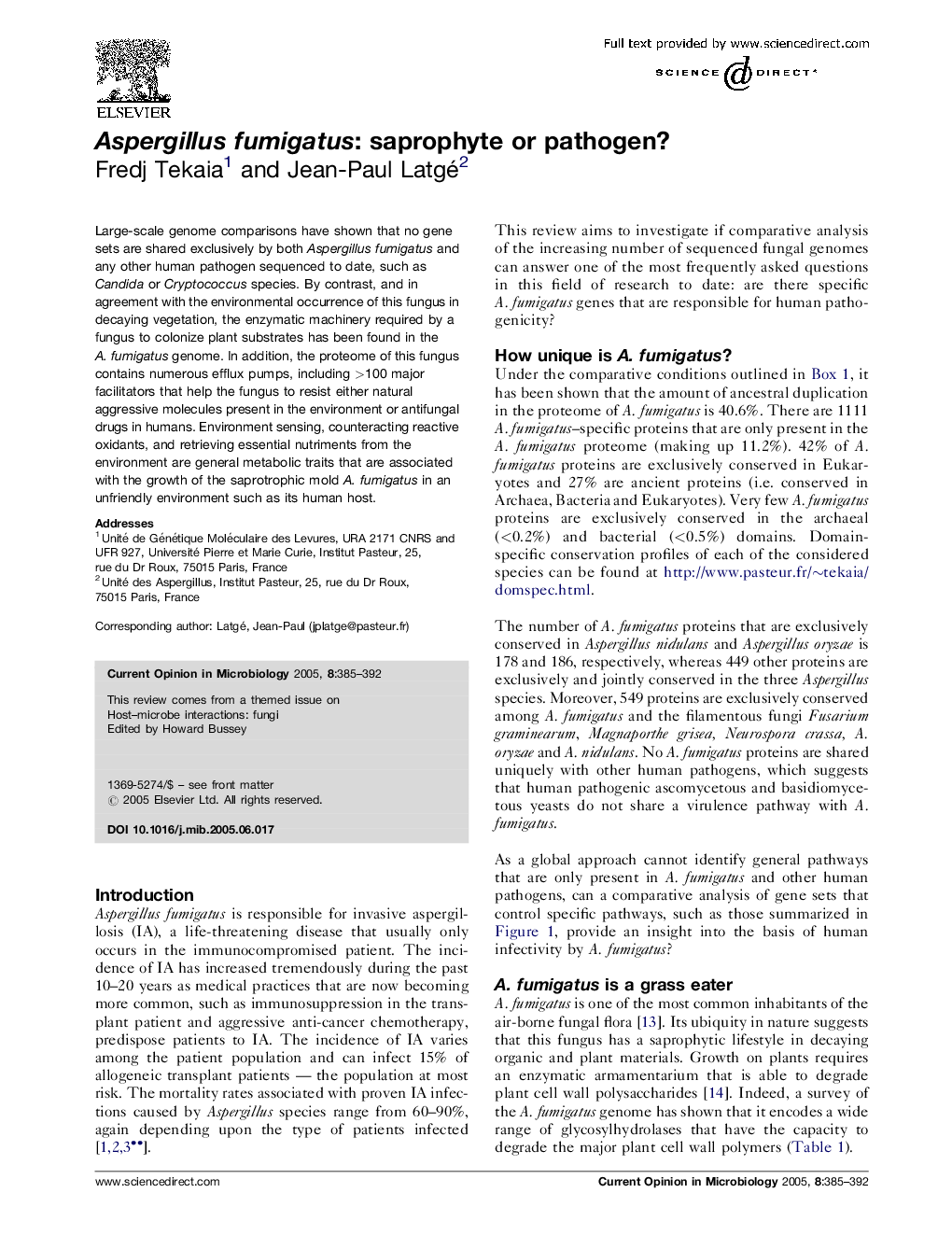| Article ID | Journal | Published Year | Pages | File Type |
|---|---|---|---|---|
| 9276653 | Current Opinion in Microbiology | 2005 | 8 Pages |
Abstract
Large-scale genome comparisons have shown that no gene sets are shared exclusively by both Aspergillus fumigatus and any other human pathogen sequenced to date, such as Candida or Cryptococcus species. By contrast, and in agreement with the environmental occurrence of this fungus in decaying vegetation, the enzymatic machinery required by a fungus to colonize plant substrates has been found in the A. fumigatus genome. In addition, the proteome of this fungus contains numerous efflux pumps, including >100 major facilitators that help the fungus to resist either natural aggressive molecules present in the environment or antifungal drugs in humans. Environment sensing, counteracting reactive oxidants, and retrieving essential nutriments from the environment are general metabolic traits that are associated with the growth of the saprotrophic mold A. fumigatus in an unfriendly environment such as its human host.
Related Topics
Life Sciences
Immunology and Microbiology
Microbiology
Authors
Fredj Tekaia, Jean-Paul Latgé,
